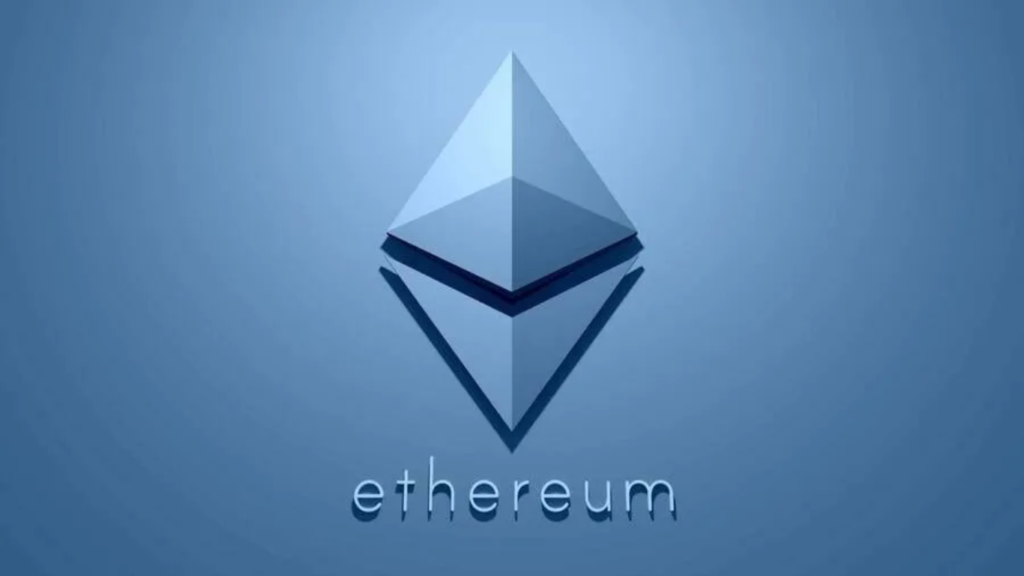(Benefits of Ethereum) Ethereum is a decentralized, open-source blockchain platform that enables smart contracts and decentralized applications (dApps), powered by its native cryptocurrency, Ether (ETH).
Table of Contents
Introduction

Ethereum is a powerful blockchain platform designed to go beyond simple cryptocurrency transactions. It provides a flexible environment where developers can create decentralized applications (dApps) and smart contracts—automated agreements that execute based on set conditions. Unlike traditional systems that rely on centralized control, Ethereum runs on a global network of computers, ensuring transparency and resistance to censorship. With its native token, Ether (ETH), it fuels transactions and operations across the ecosystem, making it a cornerstone of decentralized finance (DeFi), NFTs, and Web3 innovations.
Benefits of Ethereum
Smart Contract Functionality:
Ethereum enables the creation of smart contracts—self-executing agreements with no need for intermediaries, reducing costs and increasing efficiency.
Decentralization:
Applications built on Ethereum are run on a decentralized network of nodes, which increases transparency, reduces censorship, and improves security.
Supports dApps (Decentralized Applications):
Developers can build a wide variety of decentralized applications on Ethereum, including games, finance platforms (DeFi), and NFT marketplaces.
Active Developer Community:
Ethereum has one of the largest and most active developer communities, which contributes to continuous upgrades, innovation, and support.
Interoperability:
Ethereum-based projects can often interact with each other using common standards (like ERC-20 and ERC-721), enhancing their usability and integration.
Security and Transparency:
All transactions and smart contract executions are recorded on the blockchain and are publicly visible, providing high levels of transparency and auditability.
Global Accessibility:
Anyone with an internet connection can access Ethereum’s network, making financial services and digital tools available to unbanked and underserved populations.
Ethereum 2.0 and Sustainability:
The recent shift to a Proof-of-Stake (PoS) model with Ethereum 2.0 has significantly reduced energy consumption, making it more environmentally friendly.
Innovation Hub:
Ethereum is the backbone of major Web3 innovations, including decentralized finance (DeFi), NFTs, and DAOs (Decentralized Autonomous Organizations).
Ownership and Control:
Ethereum allows users to maintain control over their data, assets, and identity without relying on centralized services.
Who Controls Ethereum?
Core Developers:
A group of developers contribute to Ethereum’s open-source codebase. They propose upgrades and improvements (like Ethereum Improvement Proposals – EIPs), which the community can review and discuss.
Ethereum Foundation:
A non-profit organization based in Switzerland that supports the Ethereum ecosystem through research, funding, and development. However, it does not “own” or control Ethereum.
Node Operators & Miners (Validators):
Since Ethereum’s upgrade to Proof of Stake, control is distributed among validators who stake ETH to secure the network and validate transactions. Their participation helps maintain the decentralized infrastructure.
Community Governance:
Decisions about the future of Ethereum are influenced by community consensus. Anyone can contribute to discussions, and major changes require broad support from developers, validators, and users.
DApp Developers & Users:
The people building and using decentralized apps also play a role in shaping Ethereum’s future by driving demand and innovation.
Cost of Ethereum (ETH):
The cost of Ethereum, or more accurately, the price of Ether (ETH)—its native cryptocurrency—fluctuates constantly based on market supply and demand. As of now, to get the latest and most accurate price, you should check live cryptocurrency exchanges or financial websites like:
- CoinMarketCap
- CoinGecko
- Binance
- Coinbase
- Kraken
Factors Influencing Ethereum’s Price:
- Market Demand and Supply
- Network Usage (DeFi, NFTs, dApps)
- Investor Sentiment
- Regulatory News
- Upgrades (e.g., Ethereum 2.0, EIPs)
- Overall Crypto Market Trends
Conclusion
Ethereum has established itself as a groundbreaking platform that goes far beyond just cryptocurrency. With its support for smart contracts and decentralized applications (dApps), it has become a foundational layer for innovations in finance, digital identity, NFTs, and more. Its shift to Proof of Stake has improved scalability and energy efficiency, making it more sustainable for the future. While its value and costs may fluctuate, Ethereum continues to attract developers, businesses, and investors worldwide. As the ecosystem grows, Ethereum remains at the forefront of the decentralized web revolution.
FAQs
How is Ethereum different from Bitcoin?
While Bitcoin is mainly a digital currency, Ethereum offers a programmable platform that supports smart contracts and dApps, making it more versatile.
Is Ethereum secure?
Yes, Ethereum is considered secure due to its decentralized nature and cryptographic principles. However, vulnerabilities in smart contract code can pose risks if not written properly.
What is Ethereum 2.0?
Ethereum 2.0, also known as the Merge, is an upgrade to the Ethereum network that switched it from a Proof of Work (PoW) to a more energy-efficient Proof of Stake (PoS) consensus mechanism.
Is Ethereum a good investment?
Ethereum is considered a strong long-term investment by many due to its wide adoption, developer support, and role in powering decentralized technologies. However, like all cryptocurrencies, it carries market risk.
How can I buy Ethereum?
You can buy Ethereum on most cryptocurrency exchanges like Binance, Coinbase, Kraken, and others using fiat currency or other crypto assets.
Can I use Ethereum on my phone?
Yes, mobile wallets like MetaMask, Trust Wallet, and Coinbase Wallet allow users to send, receive, and interact with Ethereum-based dApps directly from their phones.
What is an Ethereum wallet?
An Ethereum wallet is a digital tool that stores your ETH and other tokens, and lets you interact with the blockchain. Wallets can be software-based (apps) or hardware-based (USB devices).

